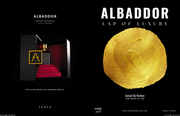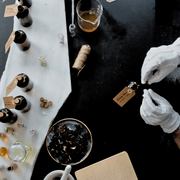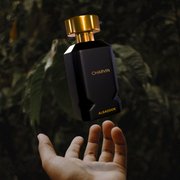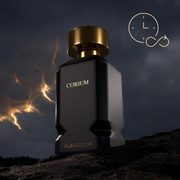Perfume Myths & Facts: Unveiling the Truth Behind Your Fragrance
Perfume is an art form, a subtle science, and for many, an essential part of personal expression. Yet, despite its widespread use, there are numerous myths surrounding perfumes that often lead to misconceptions and improper use. Let's debunk some common perfume myths and unveil the facts to help you make the most of your fragrance experience.
Myth 1: Rubbing Your Wrists Together Makes Perfume Last Longer
This is one of the most pervasive myths about perfume. Many people believe that rubbing their wrists together after applying perfume helps to spread and intensify the fragrance. Fact: Rubbing actually breaks down the perfume molecules, altering the scent and reducing its longevity. The best practice is to lightly dab your wrists together or allow the perfume to air dry on your skin.
Myth 2: Perfume Smells the Same on Everyone
A common misconception is that a perfume will smell the same on everyone who wears it. Fact: Perfume interacts with your unique body chemistry, including your skin type, pH level, and natural body scent, which can cause the fragrance to smell differently on each person. This is why a scent that smells divine on your friend might not have the same effect on you.
Myth 3: Perfume Should Be Stored in the Bathroom
Many people keep their perfumes in the bathroom for convenience, assuming that this is a suitable storage location. Fact: Bathrooms are often warm and humid, which can break down perfume molecules and alter the fragrance over time. To preserve your perfume's integrity and extend its shelf life, store it in a cool, dry place away from direct sunlight, such as a dresser drawer or closet.
Myth 4: Stronger Scents Last Longer
It’s easy to assume that stronger or more intense scents will last longer. Fact: The longevity of a perfume is determined by its concentration and the quality of its ingredients, not its initial strength. A well-crafted Eau de Parfum may last longer than a cheaper, more intense-smelling fragrance due to its higher concentration of aromatic oils.
Myth 5: You Can Smell Your Own Perfume All Day
Some people believe that they should be able to smell their own perfume throughout the day and worry if they can’t. Fact: Olfactory fatigue, also known as "nose blindness," occurs when your nose becomes accustomed to a scent, making it less noticeable to you but still detectable to others. Just because you can’t smell your perfume doesn’t mean it’s not there; it simply means your nose has adjusted to the scent.
Myth 6: Perfume Should Only Be Applied to Pulse Points
While applying perfume to pulse points is effective, many believe it’s the only way to wear fragrance. Fact: While pulse points, such as the wrists and neck, help diffuse the scent with your body heat, you can also spray perfume on your clothes or hair for a more subtle and prolonged scent. Just be cautious with delicate fabrics and hair, as alcohol in perfumes can cause damage.
Myth 7: Perfume Expires Quickly
Some worry that perfume has a very short shelf life and must be used up quickly. Fact: While perfumes do have a shelf life, they can last several years if stored properly. Factors like light, heat, and air exposure can affect the fragrance's longevity. Proper storage in a cool, dark place can help maintain the scent's quality over time.
Conclusion
Understanding the myths and facts about perfumes can enhance your fragrance experience, ensuring you get the most out of every spritz. Perfume is more than just a scent; it’s an expression of who you are. By dispelling these myths and embracing the facts, you can enjoy your fragrance to its fullest potential and let your true self shine through.
Remember, the world of fragrance is rich with possibilities and nuances. Take the time to discover what works best for you, and don’t be afraid to explore new scents and application techniques. After all, the art of perfume is deeply personal and wonderfully unique.




